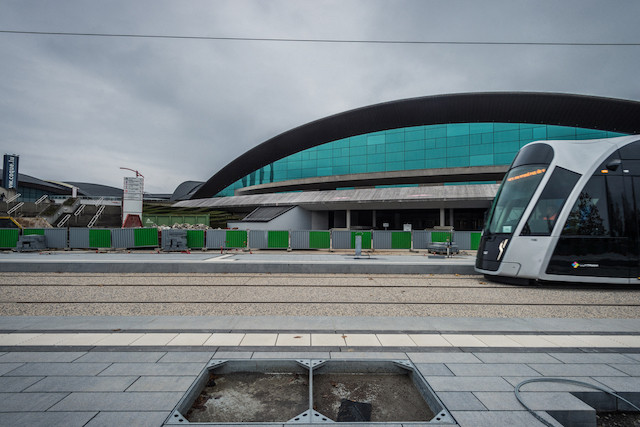Presenting the next global mobility strategy for Luxembourg, dubbed Modu 2.0, François Bausch said on Tuesday that the aim was to reduce rush-hour congestion and boost the number of people taking public transport by 20% from 2017 to 2025.
Among the key strands to achieve this strategy are:
- encouraging car-pooling to increase the number of passengers being driven around;
- encouraging more students and pupils to walk, cycle or take public transport;
- to increase the attractiveness of public transport.
Another goal, which will prove popular among rail users, is Bausch’s promise to reduce by a quarter the number of trains arriving 6 minutes or more late, based on the 2017 figures.
Bausch stressed that the strategy could only succeed if all actors worked together, saying “a single tool such as infrastructure is not the cure for the various problems related to mobility.”
Existing initiatives
A number of initiatives have been introduced to reduce congestion and encourage public transport use, including the opening of the first leg of the tram in Kirchberg at the end of 2017. The line will stretch to the train station by 2021 and at a later stage it will be extended to the airport and Cloche d’Or.
The “Positive Drive” campaign and survey is currently being rolled out in Kirchberg, where employees at nine employers--including the ABBL, Allen & Overy, Arendt, European Investment Bank, Chamber of Commerce, European Commission, KPMG, Linklaters and ONET--are encouraged to log their journeys using an application between 28 May and 6 July.
At the beginning of May, Luxembourg launched Copilote, a carpooling app connecting people with similar journeys so that they can share a single car.
Work will soon begin on the expansion of Luxembourg City train station where a fifth platform will be operational by the end of 2019. This, combined with the creation of a new Luxembourg-Bettembourg line, scheduled to be operational for 2023, is expected to reduce rail delays on the rail network which is already at over capacity.
